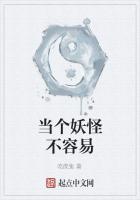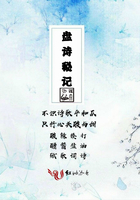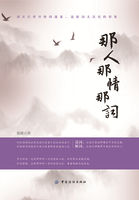During this time in Huaian, a warning was sounded as the Jin army had invaded the country and the frontier was in peril. The emperor frantically summoned his civilian officials and army generals to discuss the war situation. The local magistrates were ordered to fight back the invaders. Announcement of the examination result was temporarily postponed because of the pending war. The lord quickly sent his wife and her maid to the capital for refuge and then led his army to the frontier to fight.
By now the emperor of the Jin Dynasty (AD 1115-1234) had successfully concurred over half of Song’s territory and he wanted more. Hangzhou was known for being a beautiful city in this region and the Jin emperor wanted it to be his land. When he heard about a Haoshan Hill in the city, he asked someone to draw a picture of the hill, the West Lake and himself riding a horse with a whip in hand. The painting was inscribed words as On Horse at the First Peak of Haoshan Hill. Jin Emperor would dream to take over Hangzhou city. However, things did not go the way as he wished. After his initial attempt to march directly into the city limits failed, he decided that the best way to take over Hangzhou was to surround the city and penetrate it from all sides. He recruited local thieves and robbers to his ever-growing army, and promoted his man, Li—a boorish and short-tempered fighter—to be the commander-in-chief. Li was instructed to enlist his own men and work at harassing the Song border.
Li had guts and muscle but no brains for war tactics. Therefore, the real commander-in-chief was not him but his wife, an extraordinary woman who excelled in marksmanship, knew military strategy and tactics well and was very resourceful. When Du became the magistrate, he had been busy building defense works and storing food, making the city securely guarded as tight as a metal pail. Li was growing more and more anxious over his failing efforts to break the defense of Hangzhou city. His wife suggested to him that he attack the providence of Huaian in order to lure Du’s reinforcement army away from the city. Then, the men who stayed behind could have an easier entrance into the city and gave them the upper hand. Li agreed that this was a great idea and soon ordered his 30,000 troops to tightly encircle Huaian.
The attack on Huaian frightened the Song emperor and his ministers. Unaware that this was a plot to leave Hangzhou unguarded the emperor ordered Du to take his men and defeat the rebels at Huaian. Du, taking his wife with him, quickly followed the emperor’s order, departing for Huaian with his army by boat.
As they were 50 kilometers away, a bad news reached them that Huaian city was in a desperate situation. The boats were slow. Du was worried that they wouldn’t be able to reach the city in time so he changed route and switched to a land attack. The soldiers had to travel by horseback but Du’s wife was not a horse rider and therefore had to take a sedan chair, which is much slower than boats. This greatly slowed down the army. For this reason, the magistrate had no other options but decided that his wife and her servant girl go to Lin’an instead to take temporary refuge. The couple parted each other.
Exhausted as they were, Du and his men marched on for the rest of the day and night without stop. By dawn they had reached the besieged Huaian city. At the first sight of the aggressive and threatening invaders Du ordered his soldiers to break the siege and meanwhile sent an urgent request for reinforcement from the neighboring Lin’an city.
Noticing Du’s approaching army, Li sent his men to fend off the attack. Since Li’s real objective was to take over the beautiful Yangzhou city, he only used one thousand of his soldiers to meet enemy attack. It was a fierce fight and Du successfully broke the siege and dashed into the city. Li was not worried too much. Instead, he encircled the city once again and waited until Du surrendered because of the lack of provisions. Once inside the city, Du found it guarded by a troop of 13,000 soldiers with stocks that could survive the siege for at least 6 months. Only both the civil officials and generals were so scared of death, they thought about fleeing the city more than defending it. The first thing first was the stability, reorganization of troop and defense preparation.
The war not only shocked the emperor and his ministers but also affected life of the populace, the common people like the gentle and frail scholar Liu Mengmei. After the exam had ended he ran back to the inn where he, Liniang and the nun had taken up lodging. He quickly told them about the war and postponement of the announcements of the exam results.
“It really doesn’t matter. The results will be released eventually,” Liniang was distracted. “My father is the magistrate of Hangzhou. I’m worried about my parents. What if they’re in trouble,” she fought back tears. “Liu, it may take some more days to get the exam results, could you go and find out if they are ok?”
“Of course!”
“I only worry about leaving you alone.”
“Don’t worry. I have Mother Stone to stay with me.”
“You’re sure? Alright then. Do you want me to tell your parents about your resurrection when I find them?”
“Yes, they might not believe you though. It is unacceptable for an old-fashioned and conservative person like my father. Du Liniang thought for a moment and told Liu, “You could bring the painting with you and used it to explain that we were destined by heaven to be together. Tell him that you took sanctuary at the nunnery, stumbled upon my grave on day, the ground caved in and I was brought back.” Liu shook his head, hoping this would work. He readied himself to leave, knowing there was no other option. “Promise me you’ll be careful? I’ll miss you.”
“I am afraid no one would believe your story. I’d better tell it as it is and say you just came into my room and dated me.”
The girl flushed and said, “Stop kidding any more. Let me help you pack. You take care of yourself on the road. I’ll miss you a lot.”
At that, Liu bid farewell to his wife and set out for Huaian.















